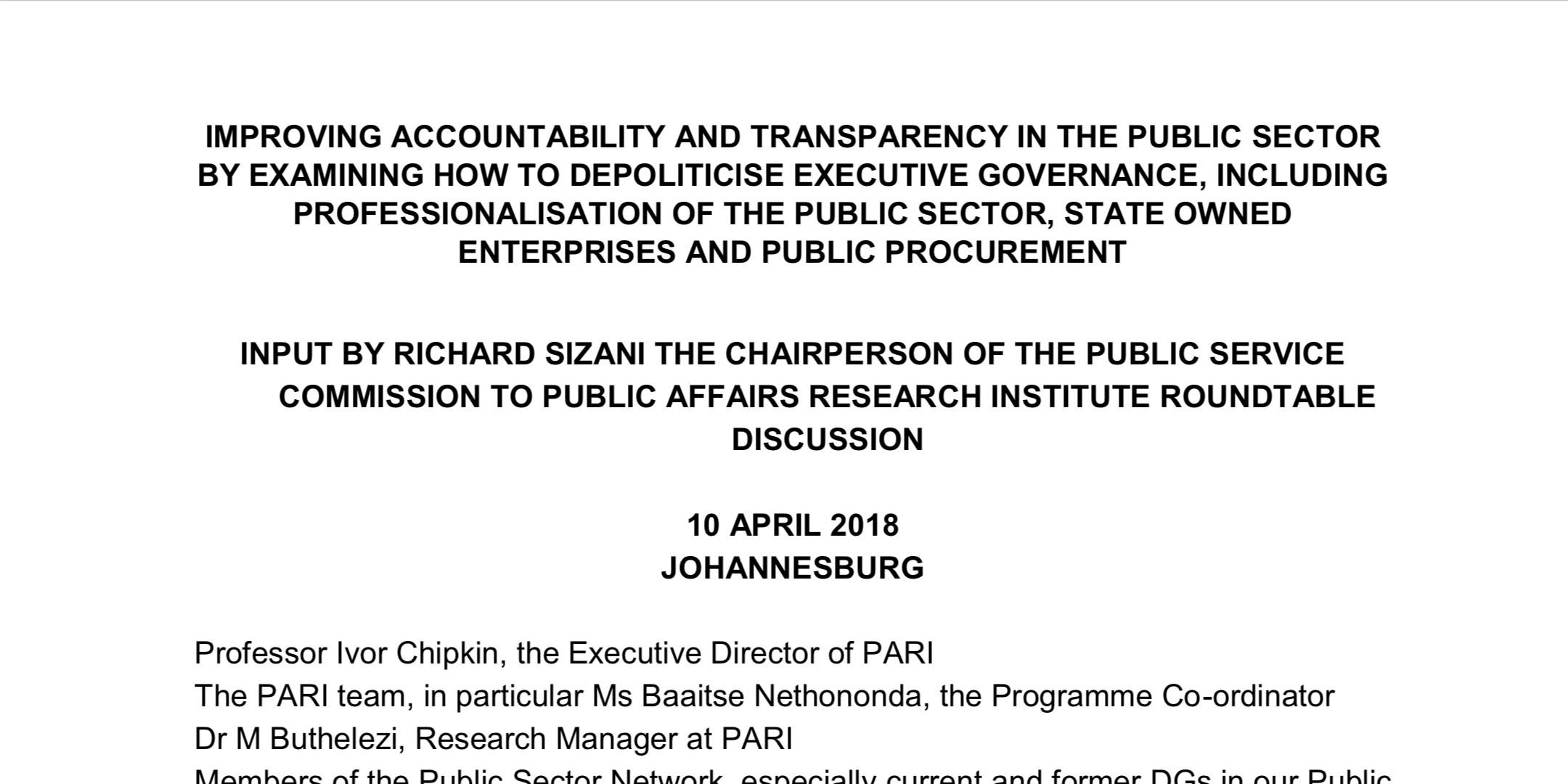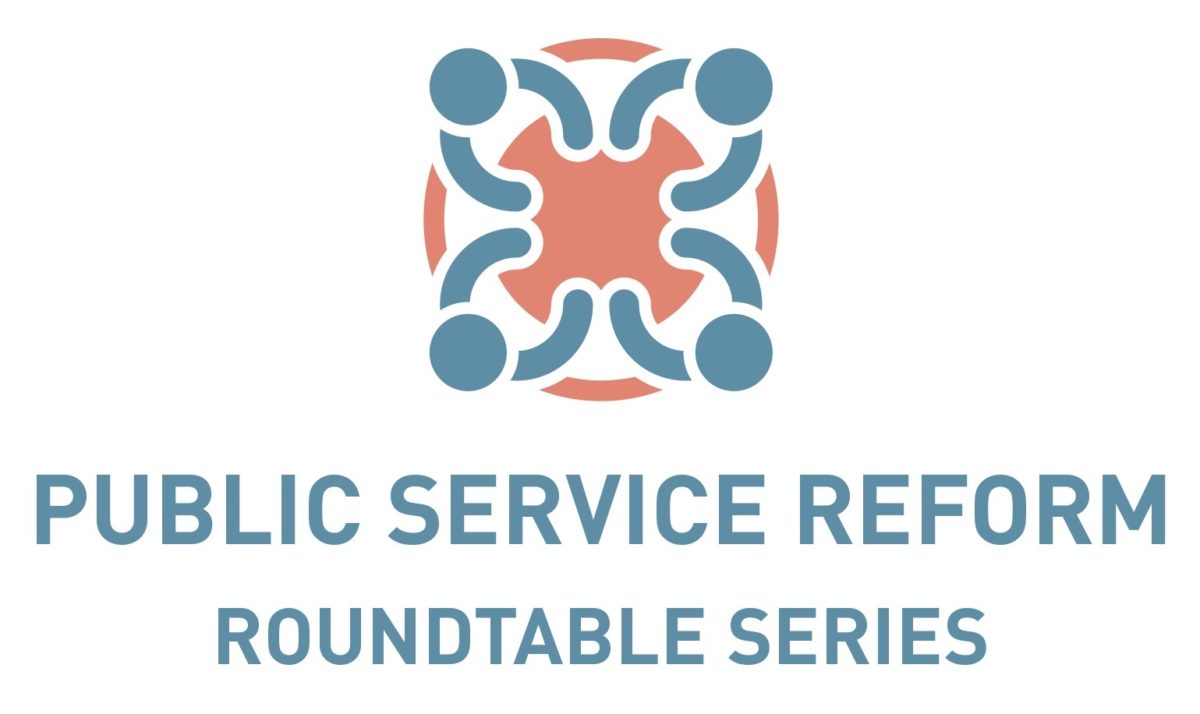What Can Cabinet Do?, 10 April 2018, Wits Humanities Graduate Centre
What happens #AfterCapture? This is the theme of a trail-blazing set of consultations and seminars being run by the Public Affairs Research Institute.
At a second roundtable in April held at Wits University and addressed by the Chair of the Public Service Commission (PSC) Advocate Richard Sizani, he said it was too early to say South Africa was in a phase that could be termed “after capture”.
He said the phenomenon of state capture held a number of lessons for the state. These included:
- the need to depoliticise the public service
- improve accountability in the public sector
- to inculcate the culture that “the defence of following instructions no longer applies”
A big challenge for the PSC was managing what he called the “political-administrative interface”. Relationships between ministers and director-general’s were built on friendship and trust and this meant that the top level of the public service was subject to as many changes as there were cabinet reshuffles. President Jacob Zuma reshuffled his cabinet 12 times.
Sizani said that a phrase was growing increasingly common to explain the phenomenon. “I can’t hunt with someone else’s dogs,” to explain why ministers feel they need their own DGs. At the latest count, the average length of stay of a DG was for three years and 18 months. The PSC head said that, thus far, he had not noticed “refugee DGs coming to my office” after the new administration of President Cyril Ramaphosa had taken over.
Sizani said discrepancies between the Public Finance Management Act (PFMA) and the Public Service Act (PSA) need to be dealt with as they set up the problem. This is because the PFMA places accounting authority in the bureaucracy while the PSA places it on the political leader.
This was understandable 24 years ago when new political leaders could not trust the inherited apartheid bureaucracy but today the conflicts between politicians and public servants were often about financial interests, said Adv. Sizani.
While the PSC believed there was still a role for political deployments into the public service, Sizani said its view was that all roles from the chief director downwards should be professional appointments. “What we criticize is cadre deployment when it’s accompanied by incompetence,” said Sizani who added, “politicians should not be involved in tenders at all”. The National Development Plan had set out the clear criterion for the professionalisation of the public service but this had not been implemented since the plan was passed.
Another challenge, said Sizani, was when to exit race as a criterion for appointment to the civil service. He revealed that the public service had reached race equity (but not gender or disability equity) and felt that it was time to broach the discussion on a meritocratic civil service.
He also warned that the PSC had noticed a rise of ethnicity as a criterion for appointment. “We believe the DG must not recruit (only) from his or her background,” said Sizani. He welcomed Ramaphosa’s focus on reducing the size and number of government departments – a pledge the president made in his state of the nation address in February.
He pointed out that there was a new pattern of “politicians who come into a department with an entourage which absorbs the budget meant for technocrats. Their salaries are often set very high – clerks, for example, can earn at director level”.
Sizani said politicians often violated guidelines on how many of these personal appointments they could make – the standard is only 10 staff members but they often appointed many more. And, the PSC head said that the phenomenon of “double-parking” where contract employees were hired to act in the place of suspended officials were “atrocious” and growing.
See Advocate Richard Sizani’s presentation below.
PARI’s deputy director Mbongiseni Buthelezi opened the round-table with a series of questions that the #AfterCapture project will probe.
- What should procurement systems look like?
- What is the “right politics” necessary for a developmental state?
- How do we manage roles between the professional and the political?
- What are the reforms necessary to ensure that we don’t end up in the throes of capture in 10, 20, 50 years time again?
NEXT UP:
Through the Lens of Life Esidimeni
8 May 2018, 17h30, Humanities Graduate Centre, Wits University
with Mark Heywood, Executive Director, SECTION27



